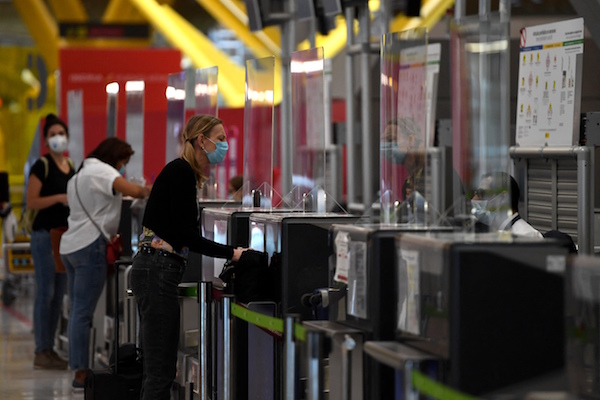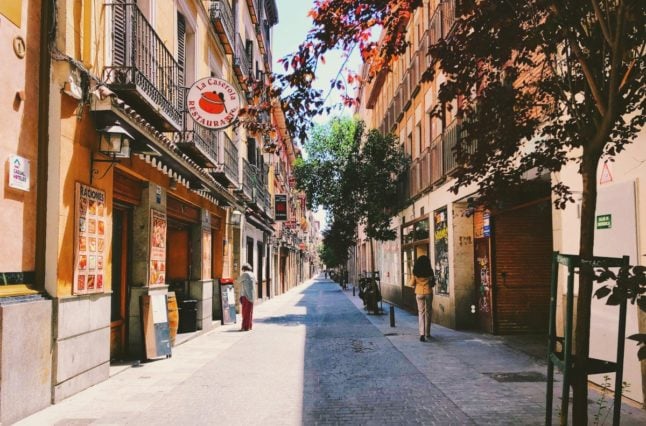Although Covid-19 infection figures in Madrid remain high, the Spanish capital has relatively relaxed restrictions compared to France and the rest of Spain.
In France, there is a nightly curfew between 6pm and 6am, while in Madrid the curfew only starts at 11pm.
All bars, restaurants, cinemas, theatres and museums also remain closed in France, while in Madrid bars and restaurants can stay open until the 11pm curfew, accepting their last customers at 10pm.
READ ALSO: LATEST: The updated Covid-19 rules and restrictions for regions around Spain
There is a limited capacity of 50 percent inside restaurants, but there is no limit on the terraces and up to six people can sit at one table outside.
Now, young people in France have reportedly cottoned on to the big differences in restrictions between the two countries and have been heading to the capital to escape for the weekend.
“The flights were absolutely full,” said one guy being interviewed by TeleMadrid at Madrid Barajas airport on Friday.
When asked why he had come to Spain, he simply said “for the restaurants”.
🔴✈️Vuelos repletos de franceses para pasar el fin de semana: "Aquí está la fiesta", asegura una de ellas. Te lo cuenta @fernandolg88.
👩💻Síguelo en📡#DIRECTO en @telemadrid https://t.co/CwKcM8RjGW pic.twitter.com/MSXL42wJBB
— Madrid Directo (@MadridDirecto) March 5, 2021
Another young French woman being interviewed said that she had come “for the fiestas”, while a third claimed that flights are “very cheap right now. You can find return flights from France to Madrid for around 70 to 150 euros.”
Rules in other parts of Spain are not so relaxed, though.
In Catalonia, bars and restaurants have only been allowed to open for breakfast and again for lunch, and from Monday, March 8th, will be able to open until 5pm only. A curfew of 10pm has also been imposed in the coastal city.
Madrid currently has Spain’s third-highest coronavirus incidence rate per 100,000 inhabitants at 242, just behind Melilla and Ceuta.



 Please whitelist us to continue reading.
Please whitelist us to continue reading.
How will they come back though? You need to prove that you didn’t travel out of France before the 31st of January to be able to return.